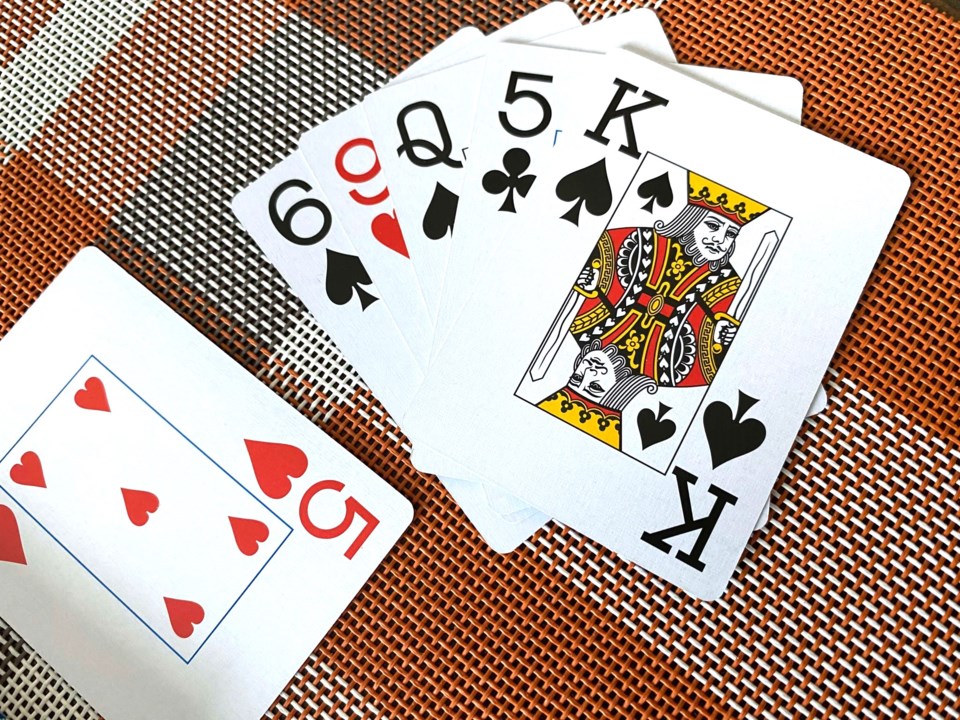YORKTON - In undertaking this series of quick reviews of games for a standard deck of cards it was something of a conundrum how many should be solitaire games.
That said it was also obvious Scoundrel, a 2011 creation from Zach Gage and Kurt Bieg had to be included.
What makes Scoundrel stand out is that the game essentially has a player battling their way through a dungeon. For someone who was introduced to Dungeons & Dragons about 35 years ago Scoundrel immediately felt familiar and sort of scratched an itch to role play a crawl through a monster infested castle.
The game uses a slightly modified deck – the red aces and face cards are not used.
This one is pretty straight forward in terms of rules, starting with each suit having a particular role.
The black cards in the deck are monsters, so you will have 26 to face as you move through the ‘dungeon’. Their damage is equal to their ordered value. (e.g. 10 is 10, Jack is 11, Queen is 12, King is 13, and Ace is 14)
The nine diamonds in the deck are the weapons you will find and potentially use as you take on the aforementioned monsters.
Each weapon does as much damage as its value. All weapons in Scoundrel are binding, meaning if you pick one up, you must equip it, and discard your previous weapon.
The hearts in the deck are, not surprisingly, health potions. You may only use one health potion each turn, even if you pull two. The second potion you pull is simply discarded. You may not restore your life beyond your starting 20 health.
From there you shuffle, place the deck face down, and deal four to the table face up, which constitutes a room in the dungeon.
You may avoid the room, for a time, moving the cards to the bottom of the deck – although never two rooms in a row.
Otherwise, you must face (use) three of the four cards in the room, so equip a weapon, fight two monsters, as an example.
The fourth card remains, and you deal three new cards to make a new room.
There are some rule details, but the idea is straight forward, survive.
Scoundrel ends when either your life reaches zero or you make your way through the entire dungeon – which is not easy, but of course you win less than five per cent of familiar Klondike solitaire too.
This one has a significant level of luck, but also enough decisions that feel like you are influencing your chances.
An RPGer or video gamer will like this one rather quickly – if they like solitaire card games at all – but it’s quick enough to learn and play to have broader appeal too.






